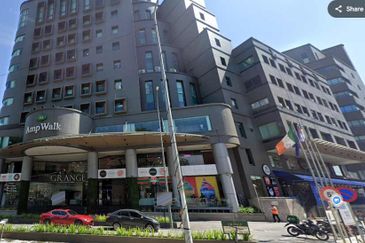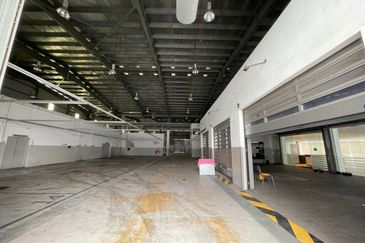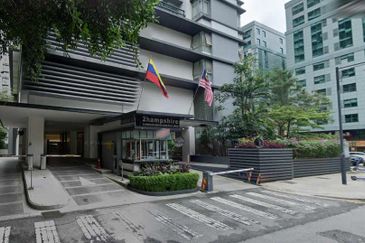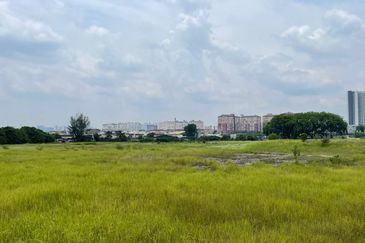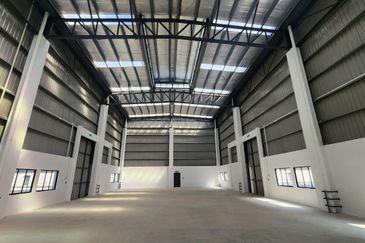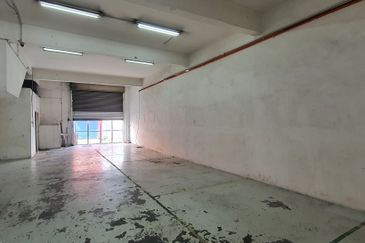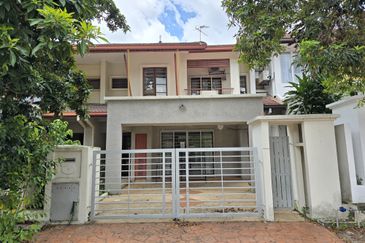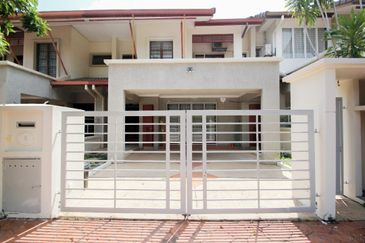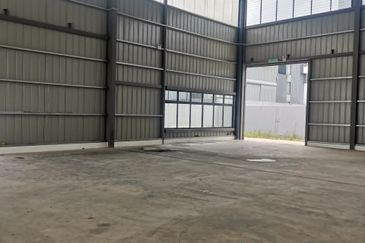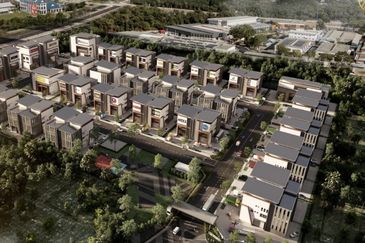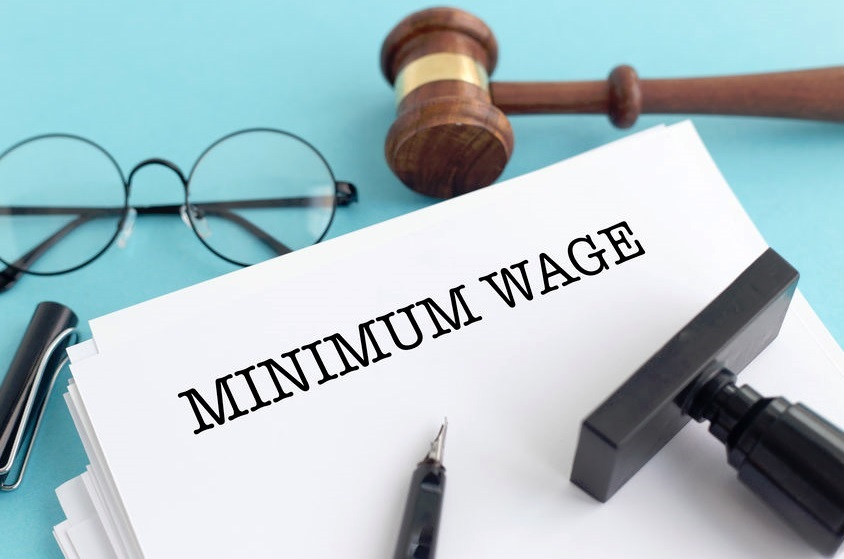
KUALA LUMPUR (Nov 4): Employers say they have been caught by surprise by the government’s recent announcement that the minimum wage in major cities will be raised to RM1,200 from RM1,100 currently, given that a revision was just made at the start of the year.
The RM100 increase was announced in Budget 2020, as the Pakatan Harapan government sought to deliver on its promise to raise the minimum wage to RM1,500, an election pledge it said it would fulfil incrementally when it took over Putrajaya for its inaugural five-year rule last year. At the time, the minimum wage was RM1,000 in Peninsular Malaysia and RM920 in Sabah and Sarawak.
Still, employers say the latest announcement was a rude surprise. “We were really surprised by the announcement. There was no prior engagement with the National Wages Consultative Council (NWCC) about this and it (the minimum wage) is supposed to be reviewed every two years,” said SME Association of Malaysia president Datuk Michael Kang Hua Keong.
The Federation of Malaysian Manufacturers (FMM), which was also taken aback by the announcement, said Subsection 21 of the NWCC Act spells out that the council is to have a consultation with the public on the minimum wage rates and coverage, then collect and analyse the data and information, before deciding on any wage increase. It is also to conduct research on the wages and socio-economic indicators.
The minimum wage review should have been done through the due process provided in the NWCC Act, and any decision to raise the minimum wage has to be done with engagement with stakeholders, FMM stressed.
Not only will this reinforce goodwill, it will also provide greater clarity and certainty on the mechanism to help businesses in planning their operations and strategies, FMM said.
Details lacking
Another grouse many employers have is that the announcement on Oct 11 lacked details. What constitutes “major cities” has yet to be unveiled by the government.
“At the current juncture, there are no details of the major cities that would be affected by the increase and the mechanisms to determine the areas within the city boundaries that would be included in the coverage, including the timeline of implementation,” said FMM.
While it depends on the classification of cities and major towns, United Overseas Bank (M) Bhd (UOB) economist Julia Goh expects the services, construction and manufacturing sectors to be most affected by the increase in minimum wage.
Associated Chinese Chambers of Commerce and Industry of Malaysia’s Socio-Economic Research Centre executive director Lee Heng Guie, on the other hand, said companies in “major cities” are already paying their employees more than the proposed minimum wage, though he conceded that some employees, like those in the restaurant business, could still be earning below that.
Given the high cost of living in the cities, Lee is of the view that the proposed increase in minimum wage to RM1,200 per month from RM1,100 is acceptable and appropriate.
Regardless, Lee said “an increase in employment cost during challenging economic and business conditions will, inevitably, not be welcomed by small and medium enterprises (SMEs) who are currently not paying wages closer to the proposed minimum wage level of RM1,200 per month”.
Knock-on effects and fuel subsidy removal
Notably, the impact on employers will not be confined to just that RM100 adjustment. There will also be knock-on effects where salaries of other employees will also have to be adjusted to maintain the wage differentials between grades and seniority levels, said FMM. This, it stressed, adds to the cost impact of the minimum wage increase.
Meanwhile, SME Association of Malaysia’s Kang said the minimum wage increase would largely benefit foreign workers and not Malaysians, as most locals are already earning more than that in the cities.
“As it is, many SMEs are struggling to survive the rising cost of doing business and the weaker economic conditions. A lot of SMEs are now adopting a wait-and-see attitude when it comes to whether they can continue to keep their business going,” said Kang.
This is because the minimum wage is not the only cost increase that they have to contend with, Kang said. On the horizon is the expected removal of fuel subsidies for RON95 and diesel, which would affect the cost of transportation and push overall costs higher.
Ultimately, the severity of the new minimum wage’s impact would depend on whether manufacturers are able to pass the cost increases to their customers, said FMM.
Also to be considered is whether businesses are competing against local players who face similar cost issues, or whether they are up against global players who can offer the same or similar products at more competitive prices.
Would minimum wage hike impact inflation?
According to UOB’s Goh, any impact on inflation may be indirect and would depend on how much pricing power businesses currently have.
“Competition in the retail and F&B (food and beverage) segments, for example, is intense and consumers are more price-sensitive today with the availability of e-commerce,” she said.
Nevertheless, headline inflation for 2020 is already expected to trend higher due to the low base effect from a year ago and the implementation of the targeted fuel subsidy scheme, where the prices of RON95 and diesel will be gradually floated based on the Automatic Pricing Mechanism.
Interestingly, not all employers were surprised by the recent announcement.
Locally groomed convenience store chain Mynews Holdings Bhd chief executive officer Dang Tai Luk said the hike was something he had anticipated. Foreign labour makes up about 32% of Mynews’ employees.
“The minimum wage hike will certainly affect us, but only marginally. In order to moderate the impact, we will have to work harder in increasing our business volume and at the same time, improve efficiency to reduce other operating costs,” Dang said.
The more critical issue, Dang said, is whether there is sufficient labour to meet the company’s growth requirements.
“Locals must be more willing to join the workforce and not be too ‘choosy’ with the type of work available. Meanwhile, the government has to be more consistent on its foreign workers’ policy and have a long-term vision in mind. Inconsistent labour policies and insufficient supply of labour are disruptive to business growth, which is bad for the economy,” he added.
Still, anticipated or otherwise, Dang, like many other employers, hopes the government would be able to put the minimum wage increase on hold and engage with the industry before deciding on any adjustments.
This article first appeared in The Edge Financial Daily, on Nov 4, 2019.
TOP PICKS BY EDGEPROP

The Stride Strata Office @ BBCC
Pudu, Kuala Lumpur

Seksyen 5, Petaling Jaya
Petaling Jaya, Selangor


